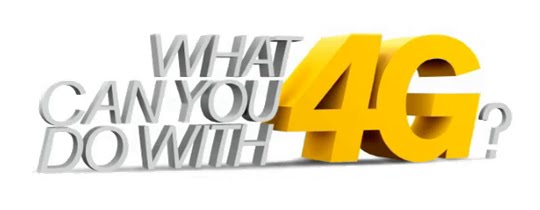4G or not? Performance matters and the tech doesn't


WiMAX was not strictly defined as a 4G technology by a standards body, but it was fast and fresh so Sprint went with the 4G label. T-Mobile then started rolling out their higher speed HSPA+ network and with performance results that show it is often faster than Sprint's WiMAX network they of course went with the 4G label. Honestly, what did you expect them to call it, HSPA+ (that's quite a mouthful)? If the consumer sees that it is faster than other networks labeled 4G then they don't see any issue with calling it 4G or maybe why not even 5G?
In December, the ITU changed/refined their definition of 4G so that WiMAX, LTE, and HSPA+ are now considered 4G technologies by definition. There are not any networks available now or coming in the near future in the U.S. that would have met the previous definition of 4G that had a threshold of up to 1 Gbit/s and thus it makes sense to call what is available or coming in the next couple of years 4G to cover the years after 3G and before we see the next increase in wireless speed.
There are some pretty heated battles and slamming going on in commercials right now with all the major US wireless carriers at each other's throats. Again, the consumer just wants to buy smartphones from the carrier with the fastest network that has the best coverage for THEM at the lowest price they can afford and thus this varies for every one of us because of the geographic expanse of the US. In my personal experiences, I rate the network speeds as follows, from fastest to slowest:
- Verizon's LTE: I saw max speeds of 23.61 Mbps down and 12.87 Mbps up with their new LG USB modem. There are currently no smartphones with LTE available, but they are coming soon.
- T-Mobile's HSPA+: I saw 6 to nearly 8 Mbps down on the T-Mobile G2 and myTouch 4G, but both of these devices are limited to 14.4 Mbps with the network currently able to get to a 21.1 Mbps theoretical speed.
- Sprint's WiMAX: I saw max speeds of 4 Mbps down and 1 Mbps up with their Overdrive and my HTC EVO 4G.
*I have yet to have a chance to try out AT&T's HSPA+ because they do not yet have any smartphones or other devices available to support this network. While AT&T will have HSPA+ devices soon and LTE to follow, their HSPA+ network is limited to the 14.4 Mbps speeds and will not be up to the 21.1 Mbps speeds of T-Mobile.
T-Mobile will be doubling the theoretical download speeds of it's HSPA+ network to 42 Mbps, which may match Verizon's LTE speeds. Sprint's WiMAX is at the maximum speed and AT&T is planning to roll out LTE so it should match up with Verizon and T-Mobile eventually.
So, in closing, I think the most accurate thing that all of these carriers could have done is call these new network technologies 3.75G, but then that would sound stupid so 4G makes perfect marketing sense and let's just get over it. None of them are going to change now and it doesn't make sense to keep arguing about it. Consumers are seeing faster speeds on their devices and as long as a consumer gets good coverage from a carrier in their region and they are satisfied with the price everything is good. There is NOT a single carrier in the US that is best for everyone and thankfully we all have choices.
Lastly, the speed and performance experience is highly dependent on the smartphone OS you are using as well. Verizon will sell millions of the new iPhone 4 even if it runs on the 3G EVDO Rev. A network and people will be happy because 3G on a fast phone is still a pleasure to use and having faster speeds is more of a luxury than a necessity at this time.